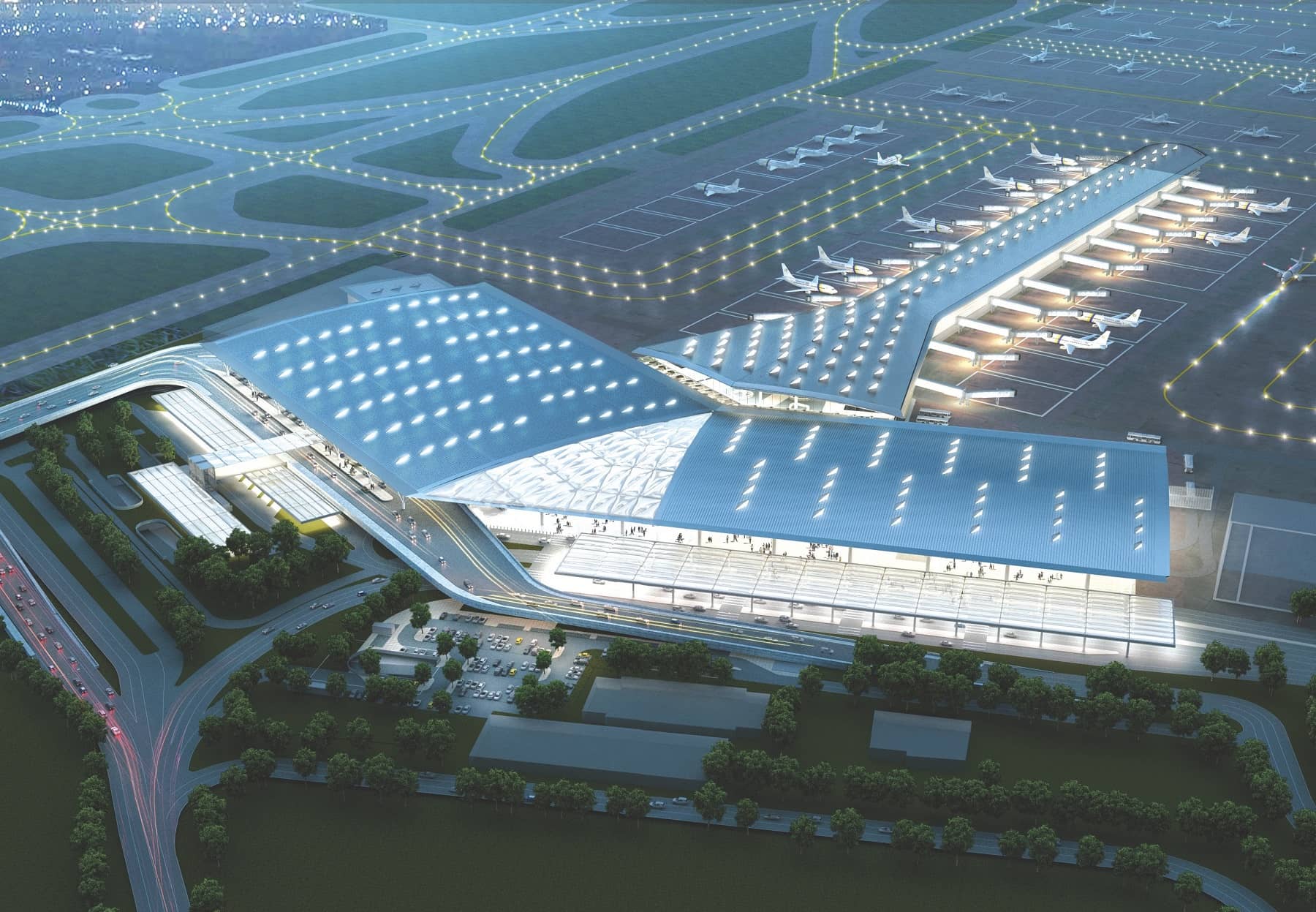
9,800 crore would be the capital expenditure for the Phase 3A expansion plan, said I Prabhakara Rao, Deputy Managing Director, GMR Group. “The airport expansion project cost is met through combination of three components –internal cash accruals, real estate monetisation and borrowings. This includes $350 million FCB, equivalent to Rs 2,425 crore, raised as part of expansion funding and internal cash accruals of 3,000 crore,” said Rao. It is not clear how the airport will recover the money which is being pumped in, as Rao declined to get into the details during a press conference in New Delhi.
The GMR Group has 54 per cent stake in DIAL. DIAL stated that L&T had been entrusted the entire engineering, procurement and construction (EPC) work of Phase 3A. “The work (under Phase 3A) have begun on all the fronts,” it added.
The Phase 3A infrastructure expansion includes construction of the fourth runway, expansion of T1 apron area and development of dual elevated Eastern Cross Taxiway (ECT). Once this expansion project culminates, Delhi Airport would become the first airport in India to have four runways as well as dual ECT. Its passenger handling capacity will increase from around 75 million passengers per annum (MPPA) to 100 million by 2022.
This story is from the {{IssueName}} edition of {{MagazineName}}.
Start your 7-day Magzter GOLD free trial to access thousands of curated premium stories, and 9,000+ magazines and newspapers.
Already a subscriber ? Sign In
This story is from the {{IssueName}} edition of {{MagazineName}}.
Start your 7-day Magzter GOLD free trial to access thousands of curated premium stories, and 9,000+ magazines and newspapers.
Already a subscriber? Sign In

Adani Airport Thales Forge Strategic Partnership to Improve Airport Operations and Passenger Experience in India
Adani Airport Holdings Limited (AAHL), the largest private airport operator in India, and Thales, a global leader in advanced technologies, today announced a strategic partnership to revolutionise AAHL’s international airport operations and passenger experience across the country.

ADVANCING AIR MOBILITY OVERCOMING CHALLENGES, SEIZING OPPORTUNITIES
Advanced Air Mobility (AAM), as analysed by M P RAJASEKHARAN, explores solutions for reducing urban congestion and enhancing access to remote locations through sustainable, automated air transport systems, addressing key challenges and future opportunities in this evolving sector.

ON THE CUSP OF GROWTH
The growth of regional airlines in India will increase the market for regional jetliners.

BOEING STRIKE DISRUPTS INDIAN CARRIERS' EXPANSION PLANS
The Boeing machinist strike has stalled aircraft deliveries, directly affecting Akasa Air and Air India Express, both of which are now facing delays in their fleet expansion efforts, highlights

REGIONAL AIRPORTS MUSHROOMING WITH CHALLENGES GALORE
Karnataka's push for regional air connectivity has led to a surge in airport infrastructure, yet many of these airports face challenges like fluctuating demand and limited flight frequencies. While the UDAN scheme has supported growth, the long-term viability of several regional airports remains uncertain, highlights

'PHARMACY OF THE WORLD' SUPPLY CHAIN WOES
India's pharmaceutical sector, has achieved remarkable growth, but faces significant supply chain hurdles, including high logistics costs and limited cold chain facilities. Addressing these challenges is essential to sustain its global impact and future expansion, reports

BUMPER WINTER AHEAD FOR INDIAN CARRIERS
The DGCA's winter 2024 schedule approves 25,007 weekly flights, marking growth for Indian carriers, with Air India Express leading in expansion and Vistara set to merge with Air India, analyses

AIRPORT ADVANCEMENT
Indian airports are placing a greater emphasis on digitalisation and enhancing their eco-friendly credentials, updates

THROTTLING AHEAD
The situation with the grounding of Pratt & Whitney GTF engines is now trending downwards, a report

Connecting cities to airports HELI-TAXIS ARE OUT, AIR TAXIS ARE IN
As heli-taxis falter, electric air taxis promise to transform urban connectivity. Yet, scalability, regulations, and operational challenges must be overcome for them to deliver efficient, affordable city-airport travel, reviews